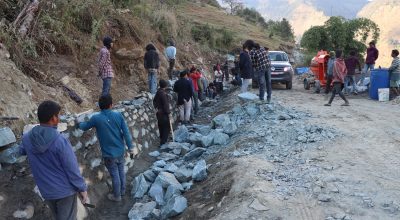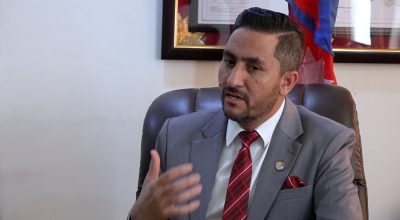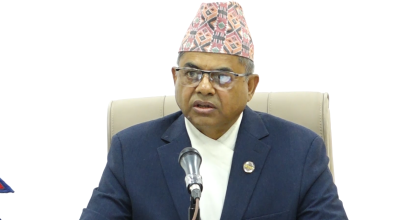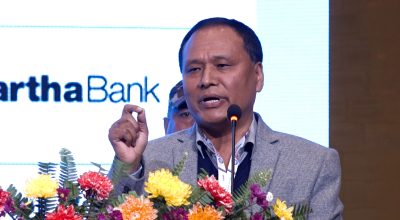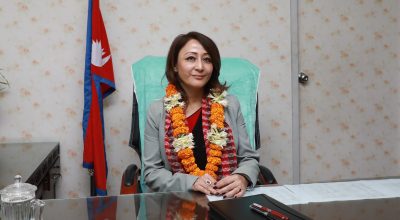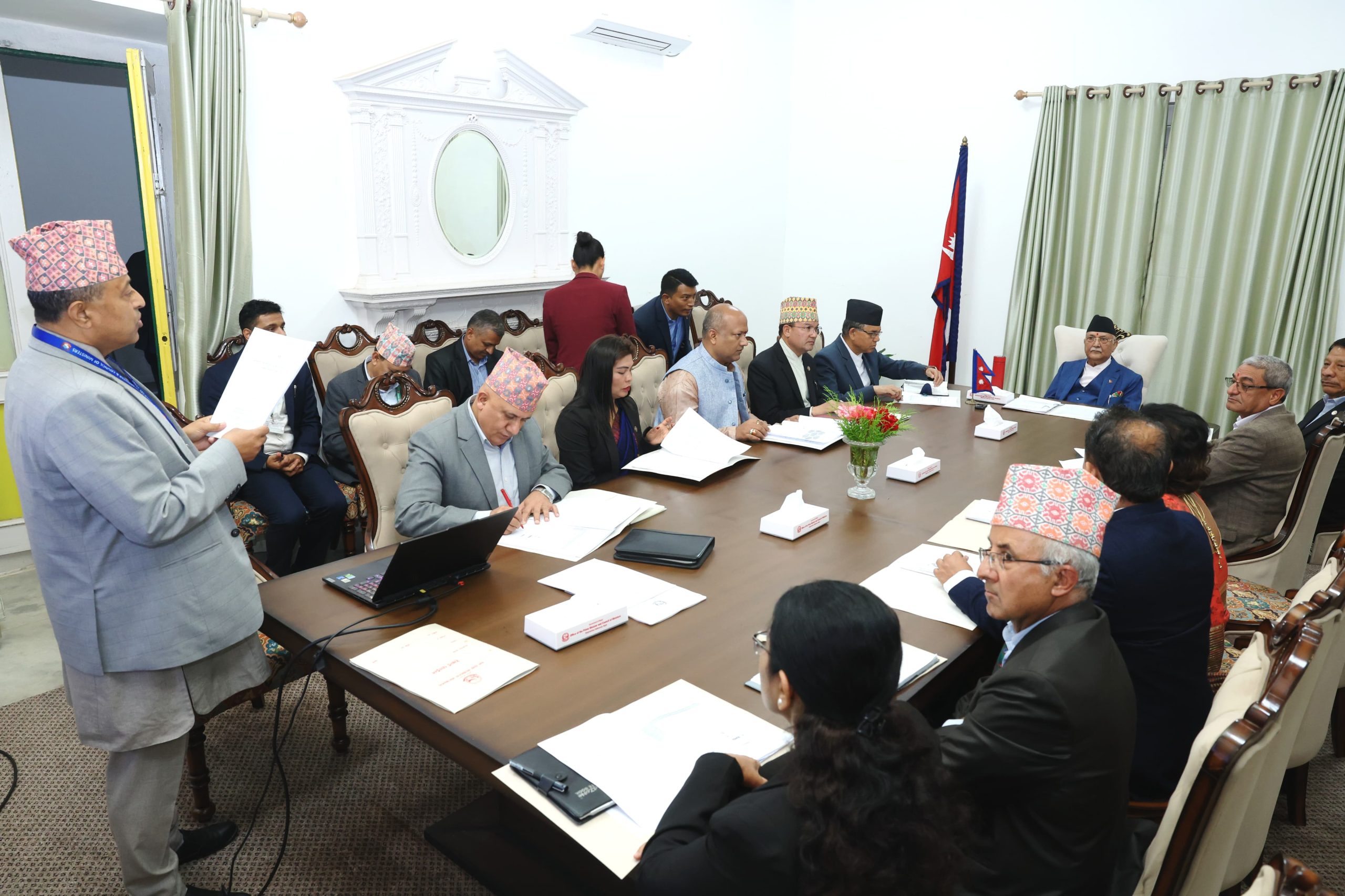
Narayan Ghimire
Kathmandu, Nov 2: In less than two weeks, yet another edition of the global climate conference, COP29, is convening.
At a time when the urgency of climate-safe people, society and the world at large is renewed with climate extremes across the world, how the 29th edition of the Conference of Parties to the UN Framework Convention on Climate Change (UNFCCC) would deliver is being observed closely.
Horrible reminders
As this scribe begins jotting down points for this write-up, a European country is lashed with a downpour causing a flash flood that killed many people and damaged huge property. The death toll in the flash flood occurred in Spain has climbed to more than 200 and dozens more missing, while the authorities there warned of further extreme weather.
A European media, Independent, wrote on Thursday: Spain’s prime minister has urged residents to stay at home as he warned devastation is “not finished” and declared Valencia a “disaster zone”.
As per the news, the downpour that occurred in eight hours amounted to years’ rainfall. Valencia and Malage cities are suffering the worst.
Nepal itself saw the devastative flooding and landslides triggered by the nonstop rainfall in two days- September 27-28, killing over 240 people and destroying property worth over Rs 46 billion.
Similarly, on October 28, UN Climate Change Executive Secretary, Simon Stiell, released a statement on the Nationally Determined Contributions (NDC) Synthesis Report, arguing that the national climate actions and plans were far behind what actually had to be done to fend off climate crises.
In the statement, he underscored: “COP29 must be an enabling COP, delivering concrete and ambitious outcomes on climate finance that take account of developing country needs, recognizing that such support is core business to protect every nation and the global economy from rampaging climate impacts.”
The report prepared with the study of the NDCs has exposed the contradiction between climate commitment and action.
Moreover, a fresh Emissions Gap Report 2024 has painted a grim picture, stating that there is a massive gap in countries’ rhetoric and reality in relation to climate action.
“The ambition means nothing without action – unless global emissions in 2030 are brought below the levels implied by existing policies and current NDCs, it will become impossible to reach a pathway that would limit global warming to 1.5°C with no or limited overshoot (>50 per cent chance), and strongly increase the challenge of limiting warming to 2°C (>66 per cent chance),” it stated by revealing the facts on the sectors and their role on emissions.
Global powers and climate stand
Moreover, as the climate change is a common global agenda, how the leaderships take this issue is always a matter of study.
This year, 2024, is the election year, picking new leaderships in over five dozens of countries. So, how seriously those leaders (the elected ones) and the forthcoming ones will take the agenda of climate change carries much significance.
For example, whether the superpower, US, will get climate-friendly leadership through the Nov 5 election is studied keenly by the international observers and searchers on climate change.
Whether it is to augment climate finances or to make new climate ambitions in the world forum, the actions and understanding of the political leadership, especially of the countries of clout cannot be neglected. Of late, the tech behemoths have got entry to the lists of polluters.
With the design and deployment of utmost information technology including the expansion of artificial intelligence (AI) at scale, voices for taking tech giants into account on the climate agenda have been vibrant.
Against this backdrop, Baku, the capital city of Azerbaijan, is all set to host the COP29 from November 11 to 22.
Accept responsibility
The horrible weather extremes and alarming reports on global climate updates are posing a pertinent question: Who are responsible for such planetary crises? Are any of the countries on top of it or in the least position to cause crises, or all are on equal footing?
There is no denying that the developed and industrialized countries have a historic responsibility behind heating the earth- emitting greenhouse gases while augmenting their material and physical progress.
It ultimately forced the poor and least developed countries to bear the brunt. The LDCs like Nepal are facing disproportionate impacts of climate change, while it is one of the least contributors to greenhouse gas emission- 0.027% to the total GHG emissions.
As in the past, Nepal is participating in the annual UN climate change conference, COP29.
Nepal and the countries belonging to its category, have no option but to exert pressure on those most responsible for boiling earth.
Ensuring easy access to climate finance is imperative to climate justice.
How vulnerable countries will be able to negotiate on the New Collective Quantified Goal (NCQG) will determine to put pressure on the large polluters for climate finance.
Works at home At home, Nepal is in dire need of building technical and institutional capacity for the activities ranging from mobilization of climate finance to proper scientific stocktaking and assessing loss and damage, and fostering atmosphere for good governance.
The climate actions must not be limited to a certain scheme or time with donation and financing but forwarded to integrate these into people’s lifestyle. The gaps in adaptation to climate change need serious review to avoid repetition and correct accordingly.
When it comes to the impacts of climate change and necessary adaptation, the role of local levels cannot be exaggerated more.
But, the researchers have pointed out sheer negligence towards indigenous knowledge in agriculture and forest management.
Swaying farmers with a slogan of ‘commercialization in agriculture’ is a blatant assault on sustainable practice of production, while disrespecting and belittling the indigenous communities in forest management and wildlife conservation is a real setback, according to researcher and writer Somat Ghimire.
He has meticulously explained various aspects of present unsustainable practices in agriculture and forestry in his recent book, ‘Samudayik Samajbad’ (Community-based Socialism).
The indigenous people are regarded as the guardians of nature. Of course, we need to be equally mindful of whether we have shirked responsibility at home as the writer has argued, while making stands for climate justice in the global forums.
At the same time, compelling articulation with effective negotiation skills for climate justice is warranted along with the showcase and celebration of best practices at home.
Nepal’s progress and potential in carbon trade and clean energy are the most welcome initiatives to share.
Nepal’s highest participation in COP29 under the leadership of President Ramchandra Paudel should be able to leverage the event as a ‘Finance COP’. #cop29 #rss #nepal







